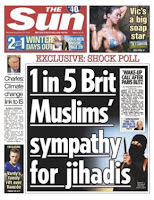Kevin MacKenzie in his a spokesman said column: "In a saga that has lasted longer than finding a decent manager for Spurs I am pleased to report that Boris is still determined to make Paul Dacre, the talented ex-Editor of the Daily Mail, chairman of the media regulator Ofcom...A new panel that will give Dacre the nod is currently being put together. Each will be asked before they join if they have a problem with Dacre. If any answer yes they won’t be on the panel. That’s how it works. The establishment hate journalists. They simply aren’t clubbable. That’s why I like them and why I am one of them."
- According to the Guardian, Paul Dacre has departed his role as chair of the Daily Mail’s parent company. Although Dacre stood down as editor of the Daily Mail in 2018, he remained as chair and editor-in-chief of Associated Newspapers.
Findings from the government's Call for Evidence on Journalist Safety include:
- Just over 4 in 5 journalists experienced threats, abuse or violence as a result of their work. These incidents included abuse, intimidation, threats of violence, violence, death threats, bullying, sexism, racism and homophobia.
- More than a third of women respondents indicated that they did not feel safe operating as a journalist in the UK.
- The majority of respondents did not report all incidents to platforms, police and employers, due in part to poor confidence they would be taken seriously.
- The Call for Evidence asked journalists to describe in more detail the impacts of incidents to identify the most common themes. The most prevalent identified impacts on everyday behaviour included avoiding certain places or crowds, being defensive and wary in public, and avoiding engaging with the public or readers in both physical spaces and on social media.
Andy Burnham on culture secretary Nadine Dorries in the Observer: "Nadine gets herself noticed, but if it becomes a thing that the culture secretary fights culture wars, then I think the job is in serious trouble. When I heard her [conference] comments, I thought, here we go, a BBC-bashing culture secretary.”
Culture secretary Nadine Dorries in the Manchester Evening News marking Journalism Matters Week: "We've introduced a trailblazing Online Safety Bill that will make us one of the first countries in the world to force tech companies to clean up their sites. But, crucially for journalists, that Bill will also prevent social media firms from arbitrarily taking down content from respected news organisations. And, even better, it includes extremely important protection and exemptions for journalists, so that we can protect their free speech while forcing social media platforms to police their sites properly."
News Media Association chairman Henry Faure Walker in InPublishing marking Journalism Matters Week: "Sadly, the American owned tech giants continue to leech revenues away from British journalism, while exploiting our content to sell advertising on their own platforms. We welcome Government moves to tackle this problem, seeking to deliver a level playing field and fair practices, but time is running out, particularly for some local publishers, and we need the Government to go further, faster. And the BBC needs to be prevented from rolling its tanks, funded by the licence fee, onto the lawn of the hard pressed independent local news sector."
BBC director general Tim Davie on the Corporation's new 10-point impartiality plan :"The BBC's editorial values of impartiality, accuracy and trust are the foundation of our relationship with audiences in the UK and around the world. Our audiences deserve and expect programmes and content which earn their trust every day and we must meet the highest standards and hold ourselves accountable in everything we do. The changes we have announced not only ensure we learn the lessons from the past but also protect these essential values for the future."
John Witherow, editor of The Times, speaking at the Web Summit and reported in his own paper [£]: “Today we are told it’s the tech giants who are killing us. Readers want everything for free, we must do click-bait, it’s a race to the bottom. Except that’s not true. Good journalism does not need saving. It’s thriving. This is a golden age for serious journalism. It’s expanding into audio and visual and reaching new audiences.When young people ask me if they should go into journalism nowadays, I say, by all means, now is a great time.”
EU Commission statement on International Day to End Impunity for Crimes against Journalists: "We will stand by and protect journalists, no matter where they are. We will continue supporting a free and diverse media environment, supporting collaborative and cross-border journalism, and tackling violations of media freedom. There is no democracy without media freedom and pluralism. An attack on media is an attack on democracy.”
From openDemocracy’s new report on the UK Government and Freedom of Information, Access Denied’: "Last year was the worst on record for government secrecy, new research by openDemocracy has revealed. Just 41% of Freedom of Information (FOI) requests sent to government departments and agencies were granted in full in 2020, down from 43% the previous year. This is the lowest figure since records began in 2005."
John Battle in The Times [£] on how to improve court reporting in the digital age: "A step forward would be a reporters’ charter across civil and criminal courts to ensure basic 'rights': a designated place to sit in the court; wi-fi; access to listing details; documents used in evidence; crucial witness statements and the judgment; a point of contact for media inquiries and a right to make representations to the court. Journalists also need a database to access reporting restrictions and relevant documents...The pace of change is not keeping up with the digital age. It is in the interests of the courts, the legal system and the media to make this happen, so let’s get on with it before it’s too late."
[£]=paywall






































